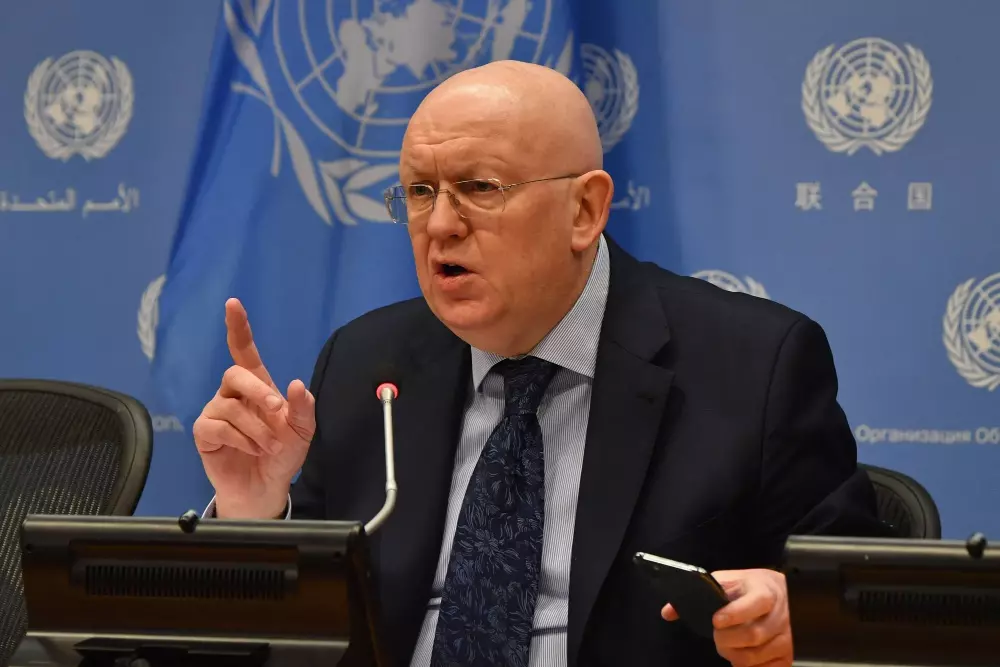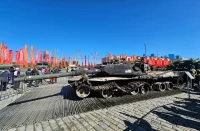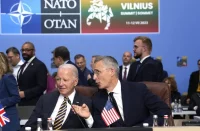Neither the pro-Israeli Mainstream Media nor the largely pro-Hamas Alt-Media Community have given his words the attention they deserve since they want to continue manipulating their audiences’ perceptions about Russian policy.
Russian Permanent Representative to the UN Vasily Nebenzya clarified his country’s policy towards the latest Israeli-Hamas war after being criticized for it by his Israeli counterpart, who objected to Moscow’s veto of the US’ resolution that was tabled last week after the US vetoed Russia’s earlier one. He was rhetorically asked what Russia would do in the case of terrorist attacks against it, which implied that his country was treating Israel hypocritically, thus prompting him to explain its approach in detail.
Nebenzya’s full remarks can be read here at the Russian Permanent Mission’s official website but will be summarized in this piece for the reader’s convenience and then analyzed. This top diplomat began by reminding everyone that it was actually the West that’s been treating Russia hypocritically on this issue after it claimed that the terrorist attacks carried out against it in Chechnya were connected to “national liberation movements.” They wanted Russia to talk with the Chechens, which it later did.
What Russia didn’t do, however, was talk with those terrorists that claimed to represent the Chechens. “We eradicated them”, Nebenyza said, after which “we were exposed to terrorist attacks – in Budyonnovsk, where terrorists seized a hospital; in Moscow, where they took hostages in a movie theater; and in Beslan, where they killed a lot of innocent children.” He then drew his Israeli counterpart’s attention to Russia’s statements and draft resolution on the latest war.

“[They] condemn terrorism, extend condolences, and express sympathy with the righteous anger of Israel over the deaths of its civilians”, which is consistent with Russia’s post-Soviet experience that he detailed. Talking to the Chechens after the defeat of those terrorist groups led to the restoration of peace in that region and its people’s pride in being part of Russia’s multiethnic civilization, which Nebenzya said can be seen by them supporting and participating in its special operation.
He then ended on the following note: “But Chechen terrorists… no, we never talked to those. We do not call on you to renounce fighting terrorists. But we do call to fight terrorists rather than peaceful civilians. That was our point. But we never denied Israel its right to defend itself against terrorist attacks.” This is the same policy that President Putin has promulgated since entering into office as this collection of his quotes about Israel between 2000-2018 from the official Kremlin website proves beyond any doubt.
The Russian leader reiterated these points on the same day as Nebenzya’s policy clarification when meeting with representatives of religious associations, during which time he confirmed Israel’s rights to exist and defend itself from terrorism but condemned its collective punishment of the Palestinians. “Both Sides Should Appreciate Russia’s Principled Neutrality Towards The Israeli-Hamas War”, but they’re unable to do so since they regard the latest war as existential and thus want Russia to take their side.
As was mentioned in the preceding hyperlinked analysis, both warring parties, their respective US and Iranian patrons, and those two’s supporters concluded by sheer coincidence that the most effective means to that end is to misportray Russia as biased towards Hamas. Israel and its allies think that Russia might cut off ties with that group to improve its reputation in the West’s eyes while Hamas and its allies think that Russia might offer it tangible support to uphold its reputation in the eyes of the Global South.
Both camps hope to manipulate popular perceptions among their targeted audiences in order to successfully pressure Russia into taking their side, but this is doomed to fail as proven by Nebenzya’s policy clarification. Israel took issue with Russia condemning its collective punishment of the Palestinians, which its failed draft resolution sought to end by calling for an immediate ceasefire, while Hamas was presumably displeased with Russia describing its attack on 7 October as an act of terrorism.
His reaffirmation of Israel’s right to defend itself against terrorist attacks discredits those two sides’ politically self-interested claims that Russia is biased Hamas, which in turn exposes the false basis upon which their respective pressure campaigns against it are being waged. That’s why neither the pro-Israeli Mainstream Media nor the largely pro-Hamas Alt-Media Community have given Nebenzya’s words the attention they deserve since they want to continue manipulating their audiences’ perceptions.
Source: the author’s blog














Comments